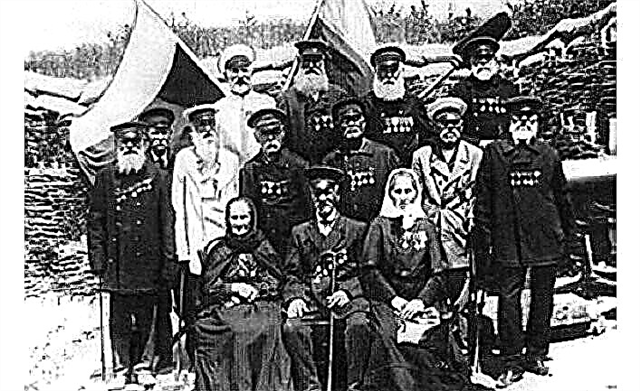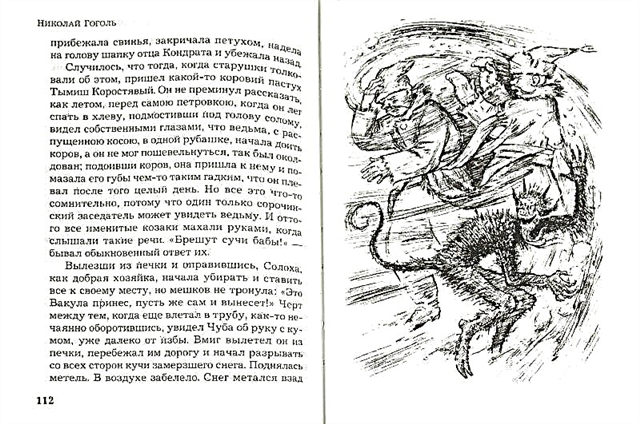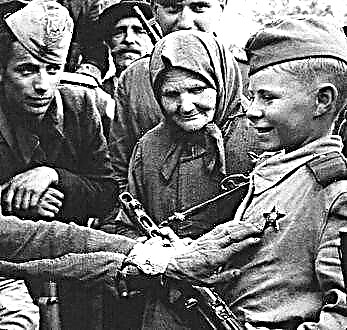Obviously, every lover of the classics who read the essay by N. S. Leskov “Lady Macbeth of Mtsensk Uyezd” and the play by A. Ostrovsky “The Storm” at least once mentally compared the two main characters of these works - Katerin. But is it really so? Let's figure it out.
Both of these women are young, beautiful, wealthy, but unhappy. And both Katerina blame their husbands for their misfortunes, who in some way do not suit them. There are different reasons for the girls: Katerina Izmaylova (“Lady Macbeth”) has an always busy husband who spends days and nights chasing profits. In his life, one goal is to earn more money, and Katerina herself is of little interest to them and they hardly speak. In addition, he is much older than her, so all of Katya’s attempts to find at least some common interests between them were doomed to failure, they were moving away more and more. In addition, in their marriage there are no children because of the husband, but society somehow blames the wife for this.
Katerina Kabanova (The Storm) also cannot find love in her marriage, but for another reason: her husband is too weak-willed. She and her husband live in a large house, where matriarchy reigns and the mother-in-law rules all affairs. She constantly reproaches the daughter-in-law for her inexperience and stupidity, and Katerina takes everything too close to her heart. He asks for help from her husband, but he only shrugs - he does not want to go into quarrels between women, and he is really afraid of his mother. Therefore, Kabanova is forced to fight one-on-one with her mother-in-law, and as we see, she constantly loses. There are no children in this marriage either.
As a result, both women, in despair and confusion, rush towards vice, cheat on their husbands, make a number of unpleasant mistakes, and eventually end their lives by suicide, without having found support and happiness in this world.
However, a big difference can be seen in how the main characters relate to their actions. And here the root differences between Kateryna are immediately visible. For Kabanova, her whole affair with Sergey is a pleasant adventure. She believes that her life only began with the appearance of a young clerk, and before that she did not live at all - existed. She really likes her new role, she feels welcome, loved, even her appearance and clothes are changing. Instead of a gray clogged mouse, we suddenly see a fatal woman - passionate, bright, impudent. And she does not regret her act at all. She does not want to think about returning to her husband, and anyone who condemns her immediately turns into an enemy.
Katya Kabanova experiences her betrayal in a completely different way. Boris does not become her center of gravity. She loves him, but this feeling is less important for her than spiritual balance, which turned out to be completely lost after her act. Reproaches of conscience torment her. She can no longer resist her mother-in-law, her bullying has already crossed all borders, and a loving spouse is also inactive. Therefore, Katerina decides to part with life.
But Izmaylova, in turn, does not repent of treason at all. Moreover, she easily goes to other, much more terrible crimes, if only to please the beautiful lover. She sees in the clerk Sergey an idol, support and love of her whole life. But suddenly Sergey turns out to be a traitor. Fate pays Katerina with the same coin - she finds a lover with another woman and, in a fit of despair and anger, kills her opponent, and then dies herself. Without love, she no longer needs to live. She renounced everything for the sake of love, but this love turned out to be a fiction, a mirage, which was only in her head.
We see that despite some similarities between the two heroines in their behavior and characters there is a significant difference. First of all, it is an attitude towards one's “sinful” actions. Katerina from Thunderstorm sincerely repents of her deeds and is desperate to find a way out of the situation. She is the victim of sinful love, to which she comes from hopelessness. In her soul, she is a bright and kind person, sincerely believes in God and does not accept lies and betrayal. Divorce and leaving the family are impossible things for that time, so all of Katerina’s actions to restore her spiritual balance seem like a floundering drowning man. In such a situation, everything was decided for her, although we see that in Kalinov she least deserves condemnation.
The second Katerina behaves openly selfish. She leaves her husband, despite the nonsense of such an act at that time. A series of terrible crimes are committed with her tacit consent, but this does not even upset her; she only thinks about how to please herself. She is ruthless, selfish and does not recognize anything but her whims. She gives birth to a child from Sergey, but even this does not make her softer and realization. She is ready all her life to lie, to debauchery, to hide the murders outside the gates of her house.
We can summarize that Katerina Izmaylova and Katerina Kabanova are two women who are similar only in insignificant features. When we see the whole picture, we understand how different these heroines are, and how different they cause emotions in the reader. Izmailov is sorry, the reader sympathizes with her and empathizes with her many thoughts. But Kabanova, on the contrary, got what she deserved. She seems the embodiment of evil. After her death, the reader feels more relief than sympathy.












